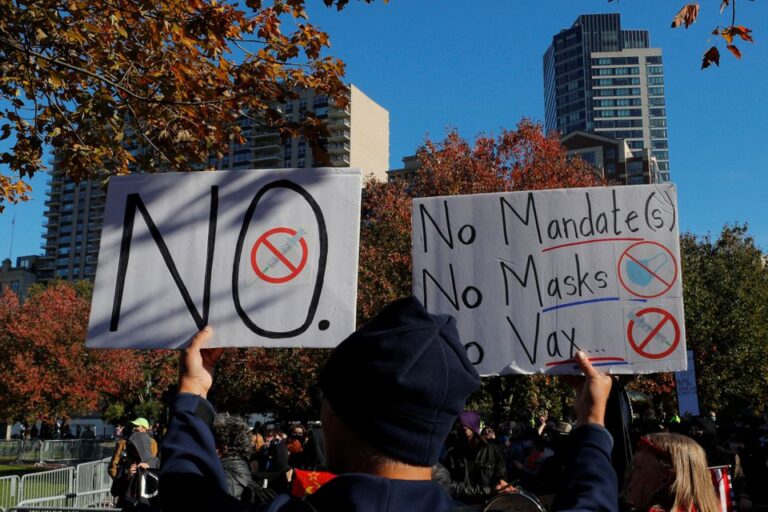
(Reuters) – Here’s what you need to know about the coronavirus right now:
Australia to reopen to foreign visa holders
Australia will allow foreign visa holders to enter the country from December, Prime Minister Scott Morrison said on Monday, the latest step to restart international travel and support its economy. The rules were relaxed in recent weeks to allow foreign family members of citizens to enter, and Morrison said this will be scaled up from Dec. 1 to allow vaccinated students, business visa holders and refugees to arrive.
The relaxation of the border rules is expected to ease labour shortages, which threaten to stymie an economic rebound.
Austria powers down public life as fourth lockdown begins
Austria powered down public life on Monday as its fourth national COVID-19 lockdown began, making it the first western European country to reimpose the drastic and unpopular measure this autumn. The government had announced on Friday that it would make it compulsory to get vaccinated as of Feb. 1, a step few countries have taken.
This lockdown is the first introduced since vaccines became widely available. The conservative-led government imposed a lockdown on the unvaccinated last week, but daily infections kept extending far above the previous peak reached a year ago.
U.S. expands COVID-19 booster eligibility to all adults
U.S. regulators expanded eligibility for booster shots of COVID-19 vaccines to all adults on Friday, allowing millions more Americans to get additional protection against the virus amid a recent rise in infections. For those aged 18 to 49, the agency said individuals may get the vaccine if they choose to. The CDC also moved to further clarify recommendations for people aged 50 to 64, suggesting all in this age group should get a booster, rather than only those with underlying medical conditions that put them at risk.
Singapore relaxes tight COVID-19 social curbs
Singapore’s government is easing some of the tight social curbs it imposed to contain the spread of COVID-19, after infections stabilised in the city-state over the past month. From Monday, limits on social interactions and dining out will be expanded to five people from the current rule of up to two vaccinated people, government ministers told a news conference on Saturday.
They said the overall infection numbers and hospital situation have largely stabilised and improved. Despite all this, compared with Europe, Britain and the United States, Singapore still has tight COVID-19 restrictions, including mandatory mask-wearing in public.
Vaccine passports would allow infections to be missed
Vaccine passports that exempt vaccinated people from regular COVID-19 testing would allow many infections to be missed, Israeli data suggest. Researchers analyzed infection rates in citizens returning to Israel through Ben-Gurion airport, for whom PCR tests upon arrival are required regardless of vaccination status. In August 2021, the rate of positive tests among vaccinated travellers was more than double the rate among the unvaccinated, said Retsef Levi of the MIT Sloan School of Management, coauthor of a report posted on the SSRN server ahead of peer review.
The data suggested that limiting frequent COVID-19 testing to unvaccinated people would “pose potential risks by reinforcing the misrepresentation that vaccinated individuals are protected from infections.”






